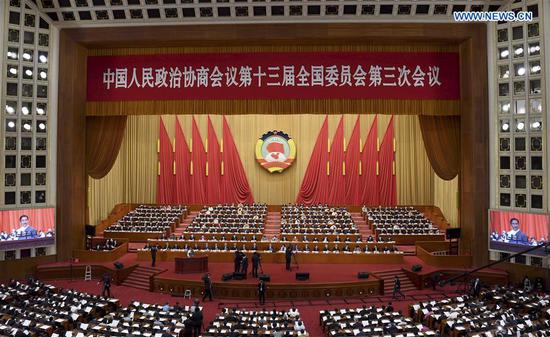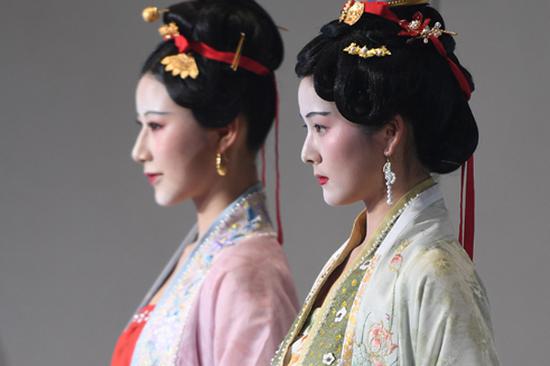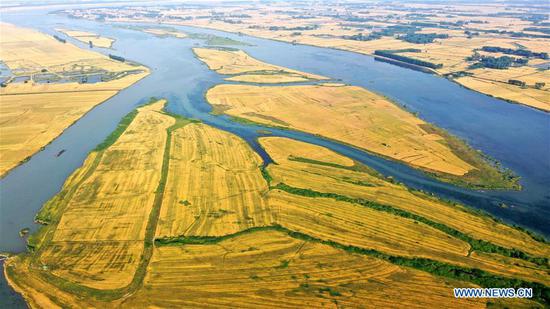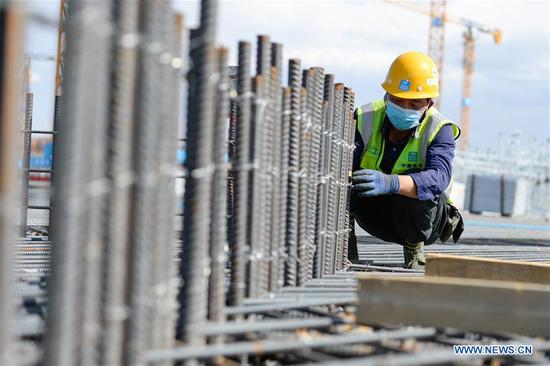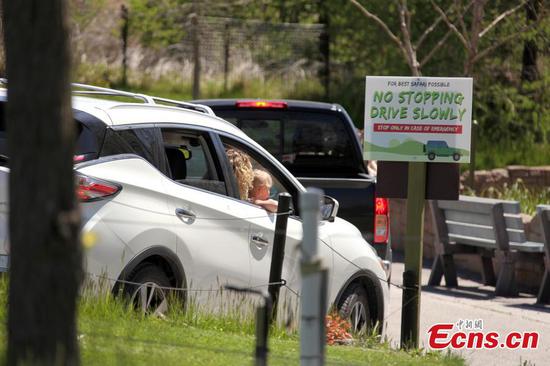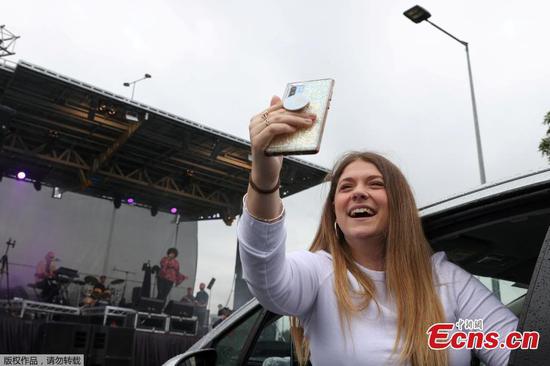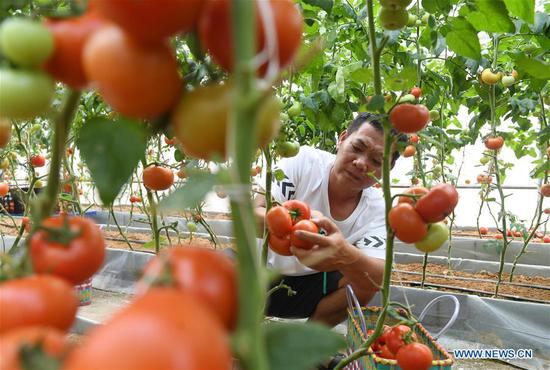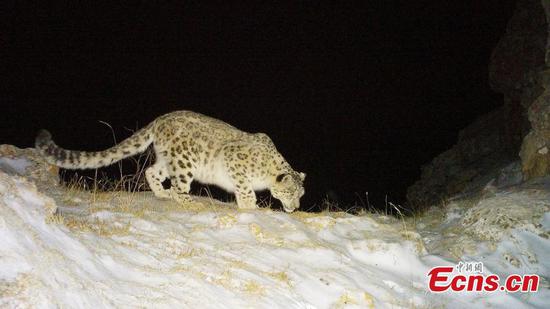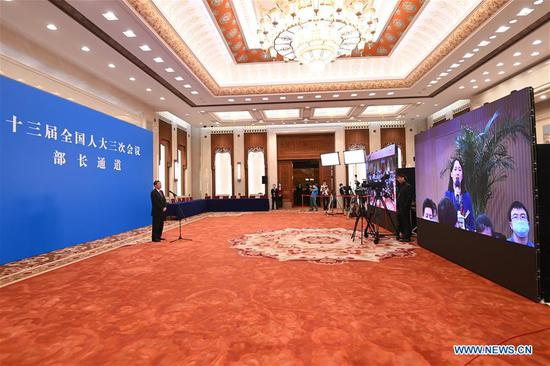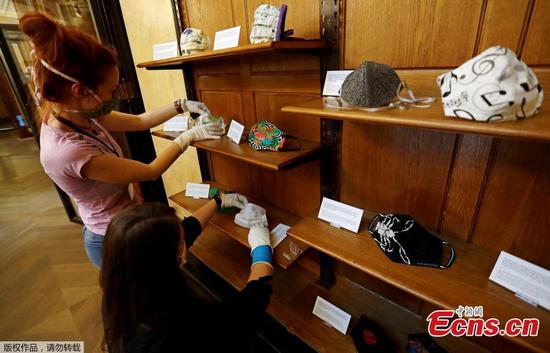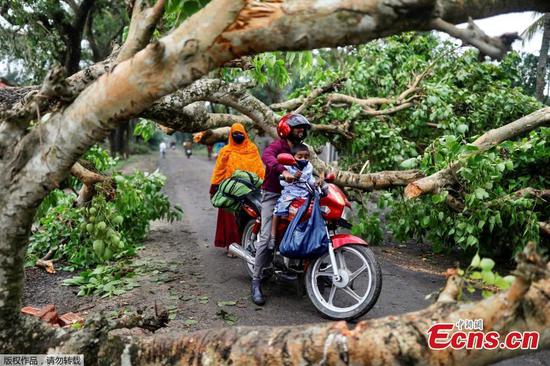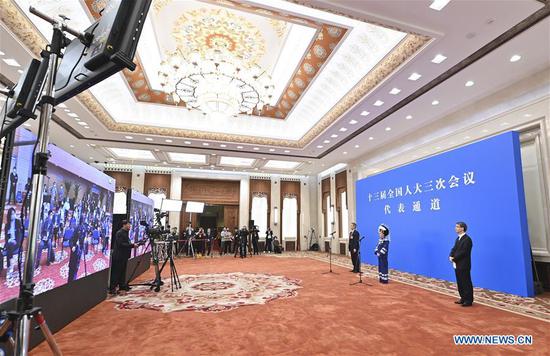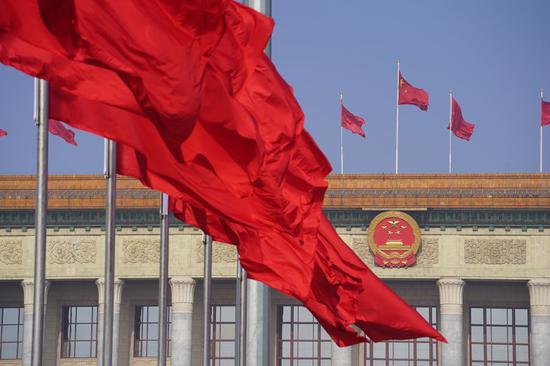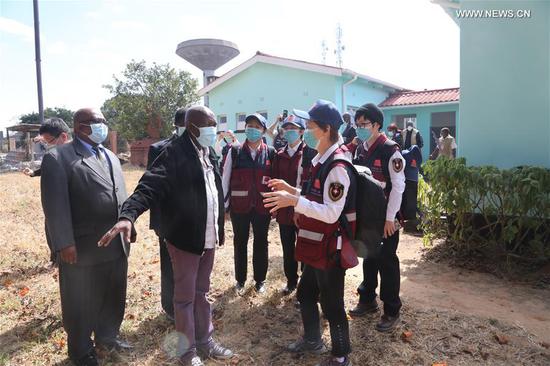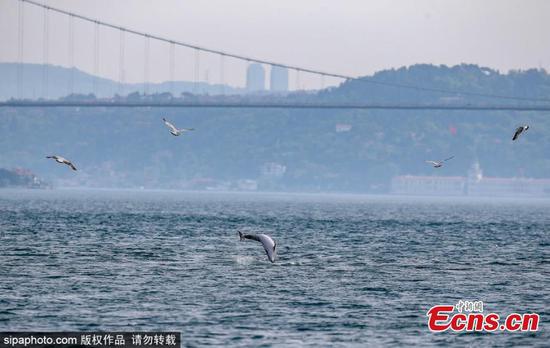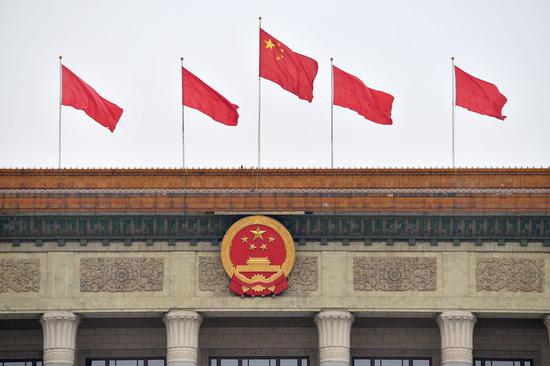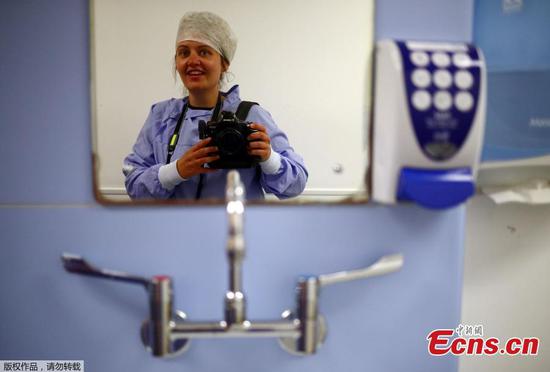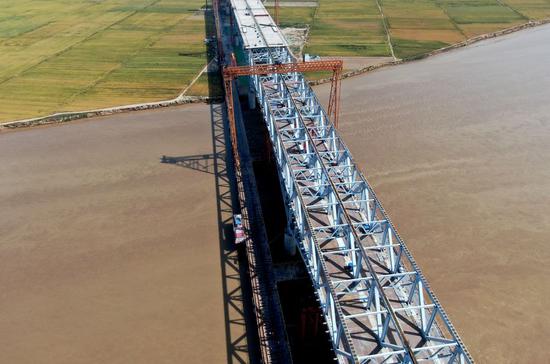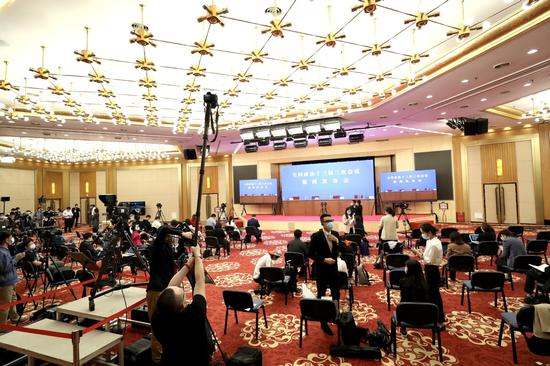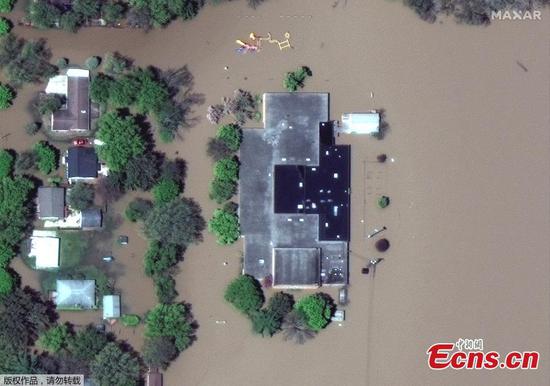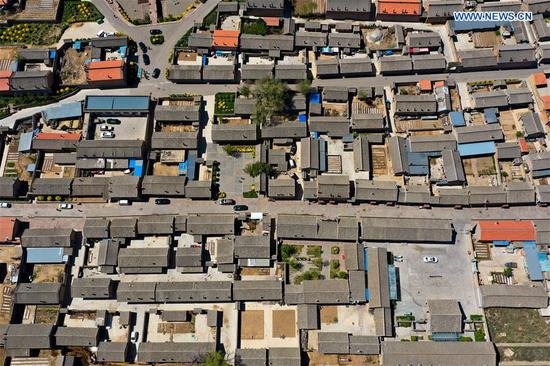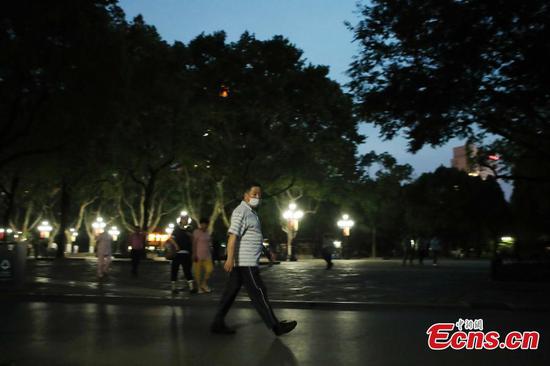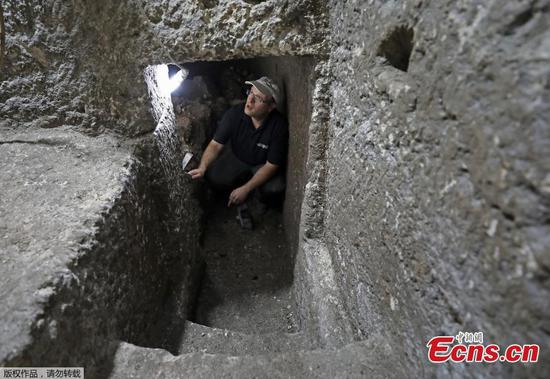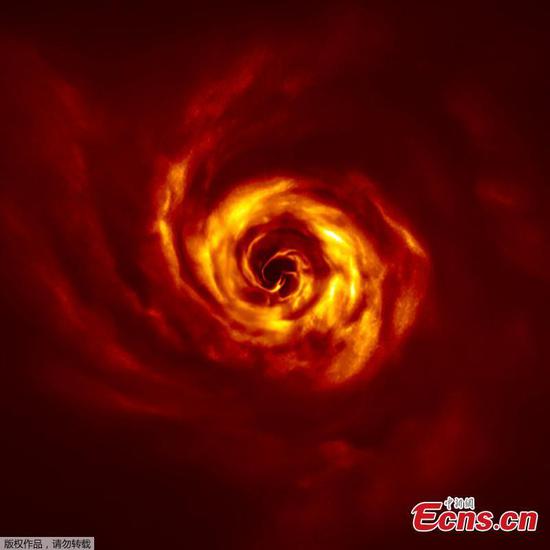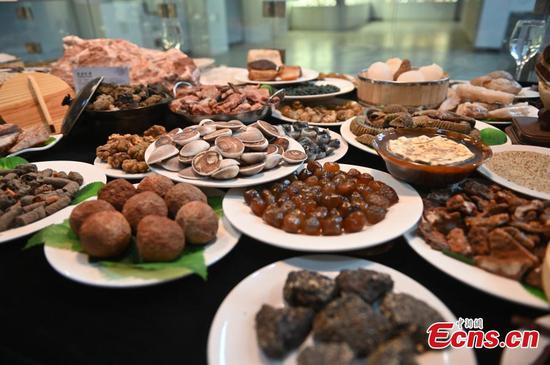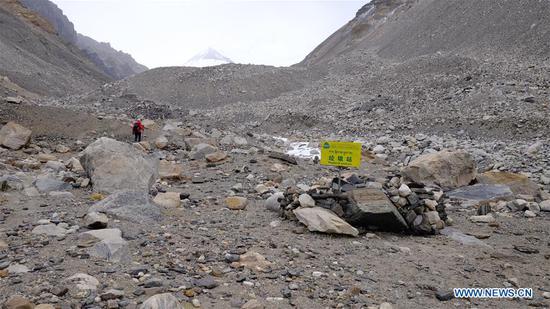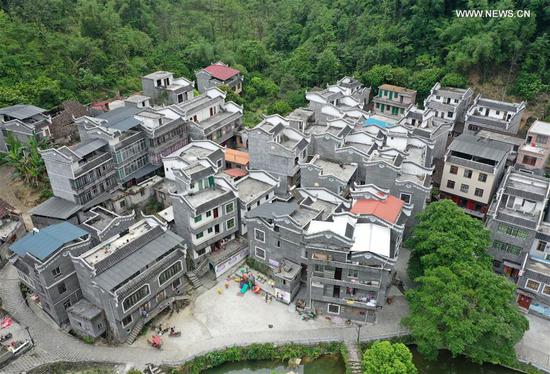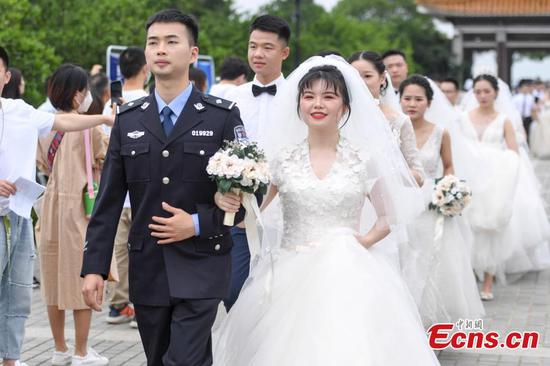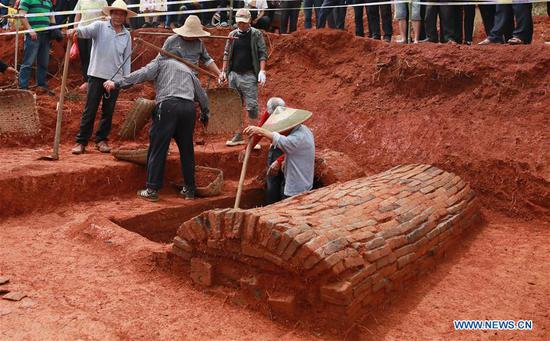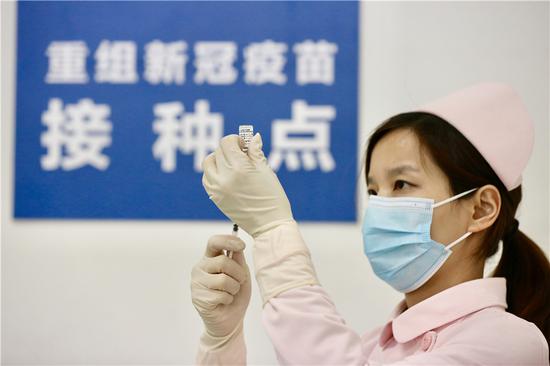
A medical worker extracts the recombinant novel coronavirus (COVID-19) vaccine into a syringe in Wuhan, Central China's Hubei province, on March 24, 2020. The first batch of 108 volunteers received inoculations after a clinical trial of the novel coronavirus vaccine in China kicked off on March 16.(Photo by Zhu Xingxin/chinadaily.com.cn)
The first COVID-19 vaccine to undergo a clinical trial in China has been found to be safe and able to generate an immune response against the novel coronavirus in humans, based on the results of a preliminary trial, according to research published on Friday night in the medical journal The Lancet.
The phase-one clinical trial of the vaccine involving 108 healthy adults, which lasted 28 days, showed promising results, although further trials are required to determine whether the immune response it elicits can effectively protect humans against SARSCoV-2 infection, according to the researchers of the vaccine.
"These results represent an important milestone. The trial demonstrates that a single dose of the vaccine produces virus-specific antibodies in 14 days, making it a potential candidate for further investigation," said Chen Wei from the Beijing Institute of Biotechnology, a leading researcher in the study.
"However, these results should be interpreted cautiously. The challenges in the development of a COVID-19 vaccine are unprecedented, and the ability to trigger these immune responses does not necessarily indicate that the vaccine will protect humans from COVID-19. We are still a long way from this vaccine being available to all."
In the trial, carried out in March in Wuhan, capital of Hubei province, about 80 percent of the 108 volunteers had at least one adverse reaction within seven days of vaccination, with the most common reactions being pain, fever and fatigue, but most of the reactions were mild or moderate in severity, according to the study. No serious adverse effects were reported within four weeks of vaccination, the study said.
Meanwhile, virus antibodies increased significantly in the volunteers two weeks after they were vaccinated, and the level of the antibodies peaked on the 28th day, according to the study.
Despite promising results, the trial had limitations such as its small sample size and limited duration, and further research is required, said the authors of the study.
In April, a phase-two clinical trial of the vaccine started in Wuhan, making it the first COVID-19 candidate vaccine worldwide to have entered the second stage of clinical trials, according to the Ministry of Science and Technology.
The trial, which involves 500 adults, will test whether the results of the first-phase clinical trial can be replicated, and whether any adverse reactions occur up to six months after vaccination. The results of the trial have yet to be released.
Production of effective vaccines has been regarded as a long-term solution to the COVID-19 pandemic. Currently, more than 100 candidate COVID-19 vaccines are under research and development worldwide, according to the World Health Organization.
Following the outbreak, China intensified efforts on the research and development of vaccines for COVID-19. Some other institutes and companies have also made progress in vaccine development. Last week, a candidate vaccine developed by the Chinese Academy of Medical Sciences was put under clinical trials after gaining approval from China's top drug regulator.
Domestically developed COVID-19 vaccines, once put into use, will be made public goods for the world to ensure their accessibility and affordability in developing countries, President Xi Jinping said at the opening ceremony of the 73rd session of the World Health Assembly via video link on Monday.
China will intensify investment in the research and development of COVID-19 vaccines, drugs and rapid testing technologies in its efforts to fight the epidemic, Premier Li Keqiang said in the Government Work Report delivered to the third session of the 13th National People's Congress on Friday.









